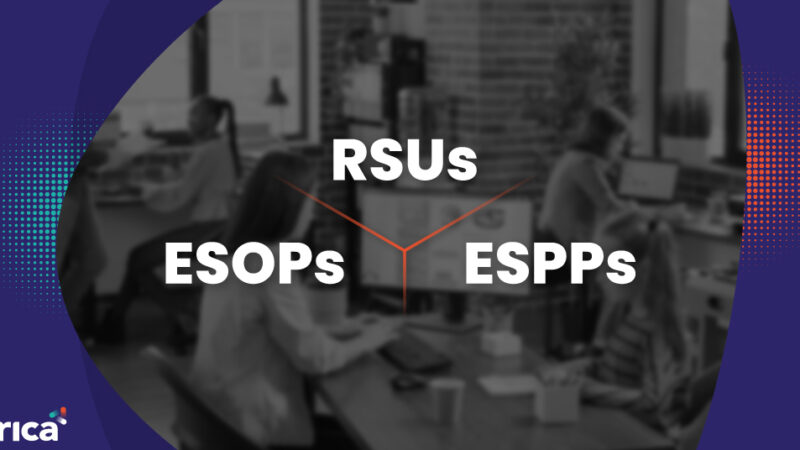
What is ESPP: Understanding Employee Share Purchase Plan
ESPP is generally used in public companies (shares traded on a stock exchange) and NOT used in Startups (private companies). ESPP offers a tax-efficient way through which employees have the prerogative of purchasing stocks of the company they work for at a discounted price. Employees contribute to the plan through payroll deductions, which build up between the offer and purchase dates.
Conceptually, ESPP is like a SIP (Systematic Investment Plan) where employees contribute a part of their salary (say 5 -15%) for a fixed period of time. Once this period is over and a corpus has been formed, the amount accumulated can be utilized to purchase the company’s stock. Then, the company uses the accumulated funds to purchase stocks on behalf of participating employees on the purchase date.
The amount of discount depends on the specific plan, say 15% lower than the market price. A widely followed practice for listed or publicly traded stocks is to consider the prevailing price as the base price, either at the beginning or end of the ESPP period, whichever is lower. The applicable discount rate applies to this base price. For example, if the stock price at the start of the period is INR 100 and at the end is INR 70, the base price is taken to be INR 70. A discount of 10% on the base price would mean that the employee can procure the stocks at INR 63 per stock.
There are two stages of tax incidence on ESPP – the first is at the time of allotment of shares, and the second is when you sell the shares.
When shares are allotted to you, the discount that the employer has given you is counted as a “perquisite” and is taxed as “Income from Salaries”, it has to deduct TDS u/s 192 of the Income Tax Act and give you Form 16 showing the TDS amount – you will have to declare the prerequisite in your tax return and claim credit of the TDS.
The second stage is when you sell the shares. At that time, the gain will be taxed as capital gains STCG or LTCG based on your holding period. For publicly traded stocks, short-term capital gain (STCG) of 15% is applicable for holding periods of less than one year. And if the holding period is one year or more long-term capital gain (LTCG) tax of 10% is applicable. Contact your tax advisor for more details.
Check out trica equity to manage your entire equity stack digitally!
Click here for trica equity’s ESOP dictionary.
Disclaimer: This article has been prepared for general guidance on the subject matter and does not constitute professional advice. The matters described herein are general in nature and have not been evaluated based on applicable laws. You should not act upon the information contained in this note without obtaining specific professional advice. No representation or warranty (express or implied) is given as to the accuracy or completeness of the information contained in this note. LetsVenture Technologies Private Limited, its partners, employees, and agents accept no liability and disclaim all responsibility for the consequences of you or anyone else acting or refraining to act in reliance on the information contained in this publication or for any decision based on it. Without prior permission of LetsVenture Technologies Private Limited, this note may not be quoted in whole or in part or otherwise referred to any person or in any documents.
ESOP & CAP Table
Management simplified
Get started for free





